This is Alirio Belloso Fuenmayor squished between his wife, Noemi and daughter, Alicia. In September 2023, he came to the U.S. to earn enough money to fix the roof on the family house, buy beds and food, and buy school supplies for his daughter.
He ended up living in Utah and working Doordash delivery. He lived on very little and sent every penny he could back to his family. He achieved most of what he set out to do: the family now has beds to sleep on instead of a mat on the floor. But he missed his family and told Noemi that life in the U.S. was difficult.
He spent his free time on the phone with his wife and daughter, asking about the girl’s homework and watching movies together. In December, he told Noemi that he was saving up to come home. “He said he couldn’t be there any longer, that his despair was so bad,” she said.
In February, an immigration judge ordered him deported. “They told him that he had to wait for a flight to arrive,” Noemi recalled. “He was desperate. He’d never been in jail or anything. He said that sometimes he was afraid that they would hurt him. One outside hears many bad things about jails.”
Finally, Alirio found out that ICE was ready to deport him. He called to tell his wife and daughter the good news, that he was coming home to Venezuela. When Alicia found out that her father was getting deported to Venezuela from the United States, the 8-year-old could not hide her joy. “My daddy is coming home soon,” she told everyone around her, including her teachers at school.
But the family hasn’t heard from Alicia’s father since March 14, the day before deportation flights carried Venezuelans from the United States not to their home country but instead to El Salvador where they were incarcerated in CECOT, a prison that allows no outside contact, provides no healthcare and allows beatings and other torture.
When the press published the list of names of men sent to CECOT, Noemi’s worst fears were confirmed. Her husband’s name was on the list.Noemi said she is worried about whether the prison is feeding her husband adequately and how the guards are treating him. Since that country’s suspension of civil rights through a policy known as the “state of exception” in 2022, officials have locked up thousands accused of being affiliated with gangs, often with little to no evidence. Some have died, and human rights observers are concerned about claims of torture and starvation.
Noemi said she doesn’t know anyone in El Salvador who can help her, but she’s trying to tell the world that her husband is a good man, that he’s not a gangster. All she wants is for her husband to come home.“He filled the house with happiness,” she said. “He is a very joyful man — but the situation of the country obligated him to leave.”She still hasn’t been able to find the words to tell her daughter what happened. Alisa asks her often when daddy is coming home.
Este es Alirio Belloso Fuenmayor aplastado entre su esposa, Noemí, y su hija, Alicia. En septiembre de 2023, vino a los Estados Unidos para ganar suficiente dinero para arreglar el techo de la casa familiar, comprar camas y comida, y adquirir útiles escolares para su hija.
Terminó viviendo en Utah y trabajando en la entrega de Doordash. Vivía con muy poco y enviaba cada centavo que podía a su familia. Logró la mayoría de lo que se propuso hacer: la familia ahora tiene camas para dormir en lugar de un colchón en el suelo. Pero extrañaba a su familia y le dijo a Noemí que la vida en los Estados Unidos era difícil.
Pasaba su tiempo libre en el teléfono con su esposa e hija, preguntando por las tareas de la niña y viendo películas juntos. En diciembre, le dijo a Noemí que estaba ahorrando para regresar a casa. “Dijo que no podía estar allí por más tiempo, que su desesperación era tan grande”, dijo ella.
En febrero, un juez de inmigración ordenó su deportación. “Le dijeron que tenía que esperar a que llegara un vuelo”, recordó Noemí. “Estaba desesperado. Nunca había estado en la cárcel ni nada. Dijo que a veces tenía miedo de que lo lastimaran. Uno afuera escucha muchas cosas malas sobre las cárceles”.
Finalmente, Alirio se enteró de que ICE estaba listo para deportarlo. Llamó para contarle a su esposa e hija la buena noticia, que estaba regresando a Venezuela. Cuando Alicia se enteró de que su padre estaba siendo deportado a Venezuela desde Estados Unidos, la niña de 8 años no pudo ocultar su alegría. “Mi papá pronto estará en casa”, le dijo a todos a su alrededor, incluidos sus maestros en la escuela.
Pero la familia no ha sabido nada del padre de Alicia desde el 14 de marzo, el día antes de que los vuelos de deportación llevaran a venezolanos desde Estados Unidos no a su país de origen, sino a El Salvador, donde fueron encarcelados en CECOT, una prisión que no permite contacto externo, no brinda atención médica y permite golpizas y otras torturas.
Cuando la prensa publicó la lista de nombres de hombres enviados a CECOT, los peores temores de Noemí se confirmaron. El nombre de su esposo estaba en la lista. Noemí dijo que está preocupada por si la prisión está alimentando adecuadamente a su esposo y cómo lo tratan los guardias. Desde la suspensión de los derechos civiles en ese país a través de una política conocida como “estado de excepción” en 2022, las autoridades han encarcelado a miles acusados de estar afiliados a pandillas, a menudo con poca o ninguna evidencia. Algunos han muerto, y los observadores de derechos humanos están preocupados por denuncias de tortura y hambre.
Noemí dijo que no conoce a nadie en El Salvador que pueda ayudarla, pero está tratando de decirle al mundo que su esposo es un buen hombre, que no es un criminal. Todo lo que quiere es que su esposo regrese a casa. “Él llenaba la casa de felicidad”, dijo. “Es un hombre muy alegre, pero la situación del país lo obligó a irse”. Todavía no ha podido encontrar las palabras para decirle a su hija lo que sucedió. Alicia le pregunta a menudo cuándo papá volverá a casa.

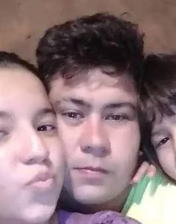
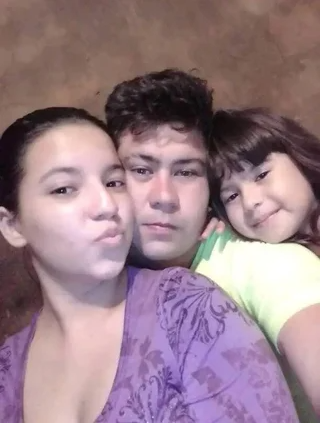
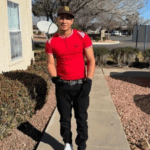

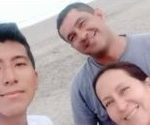
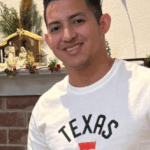
Leave a Reply